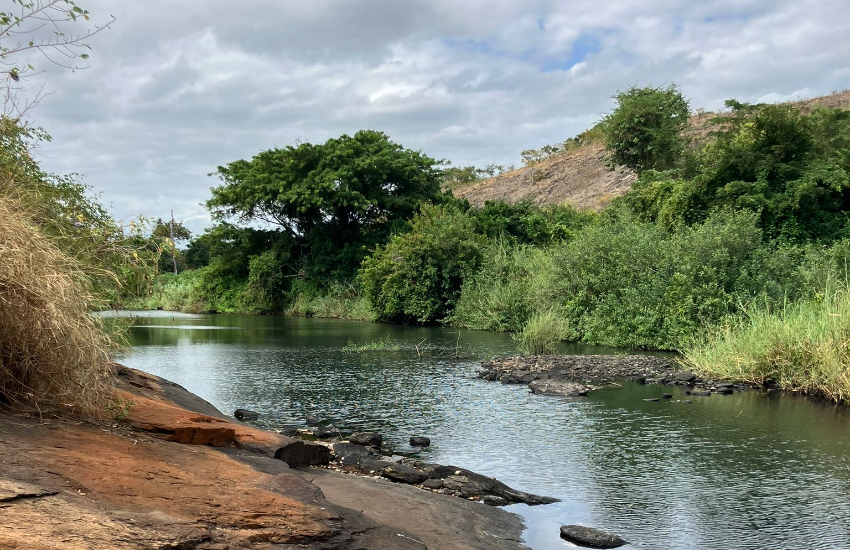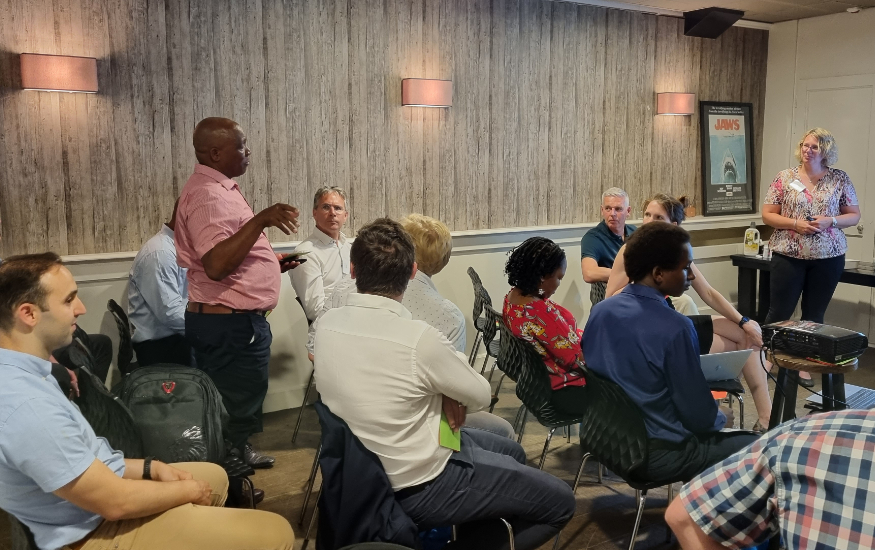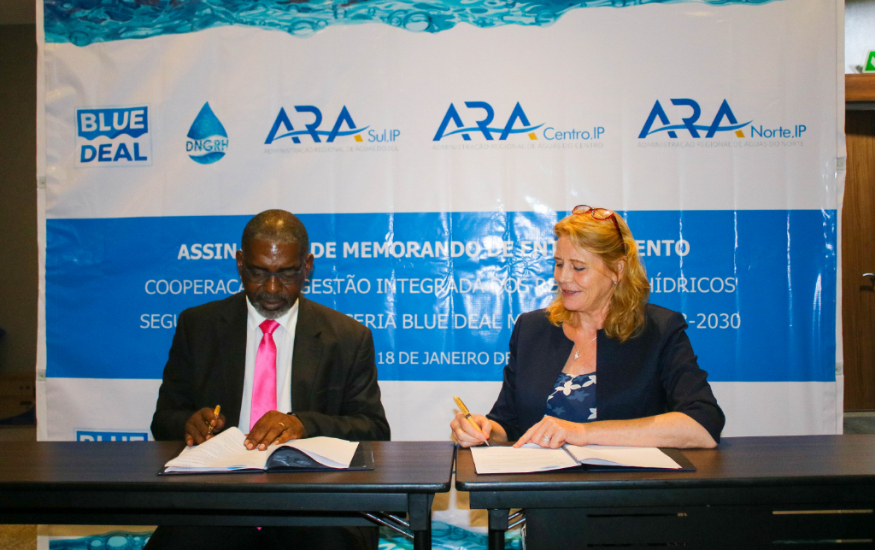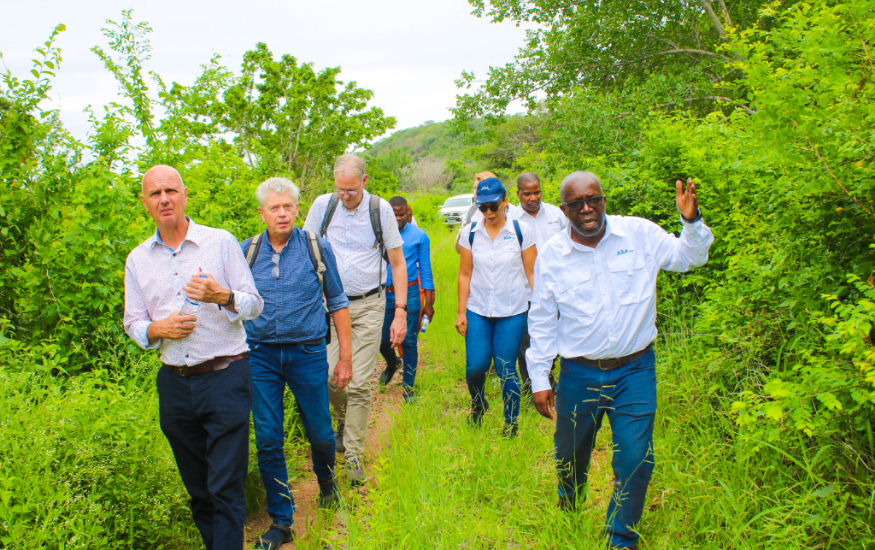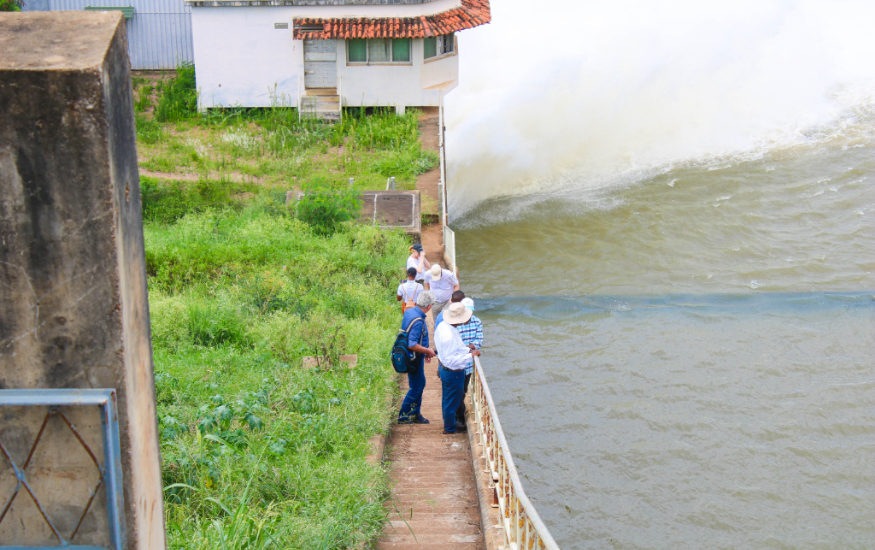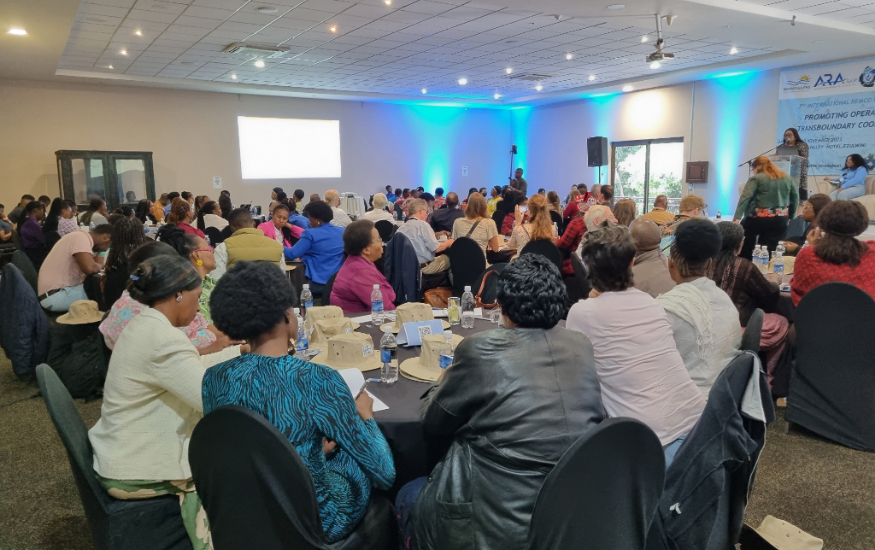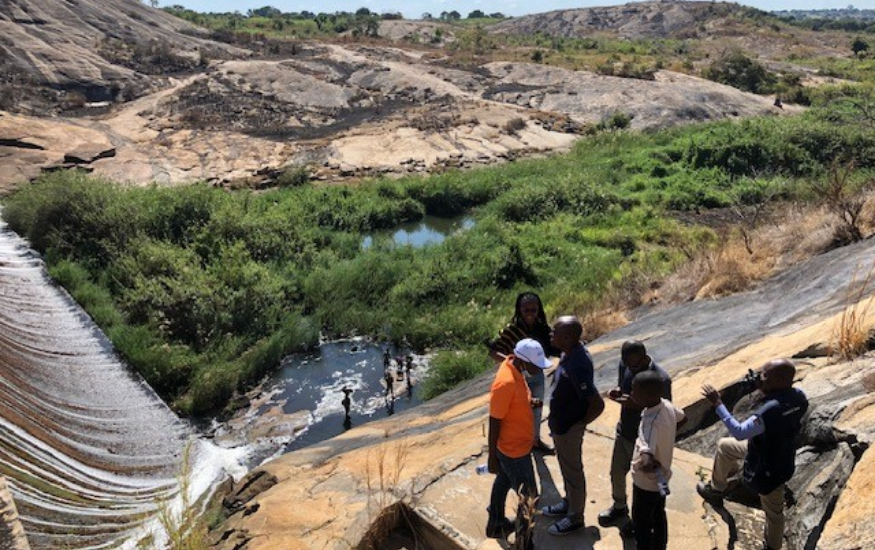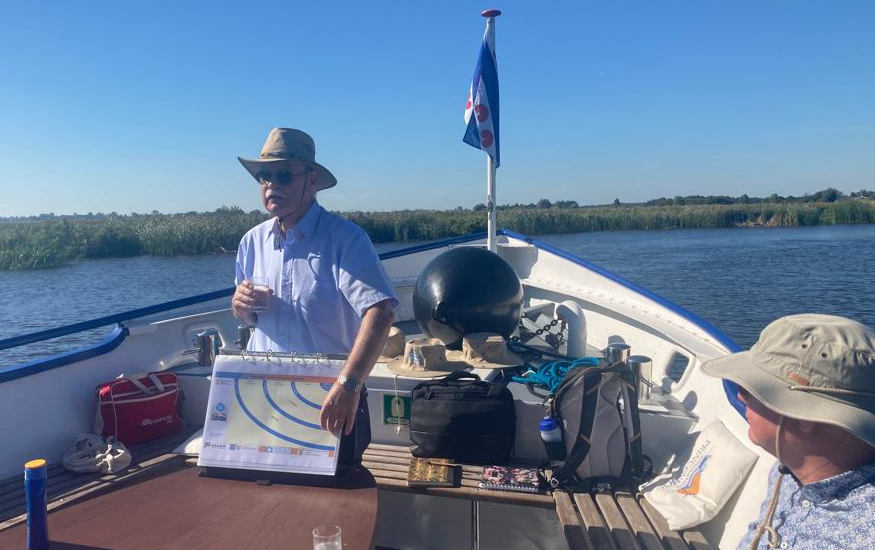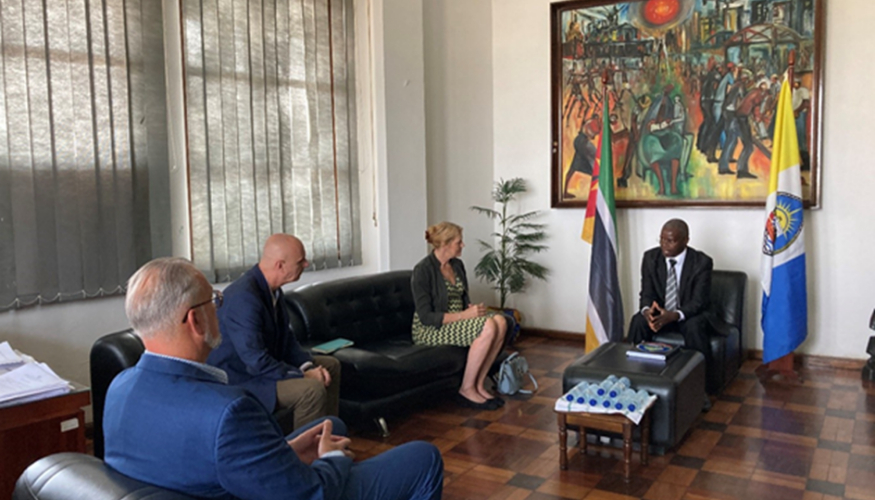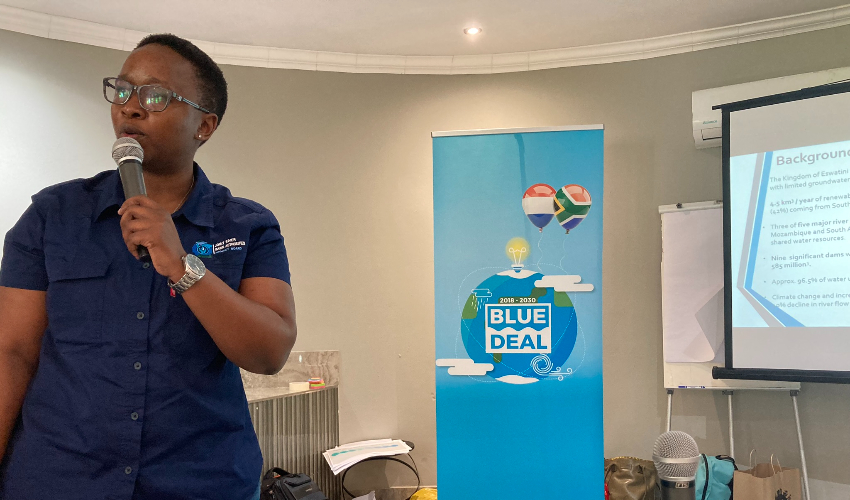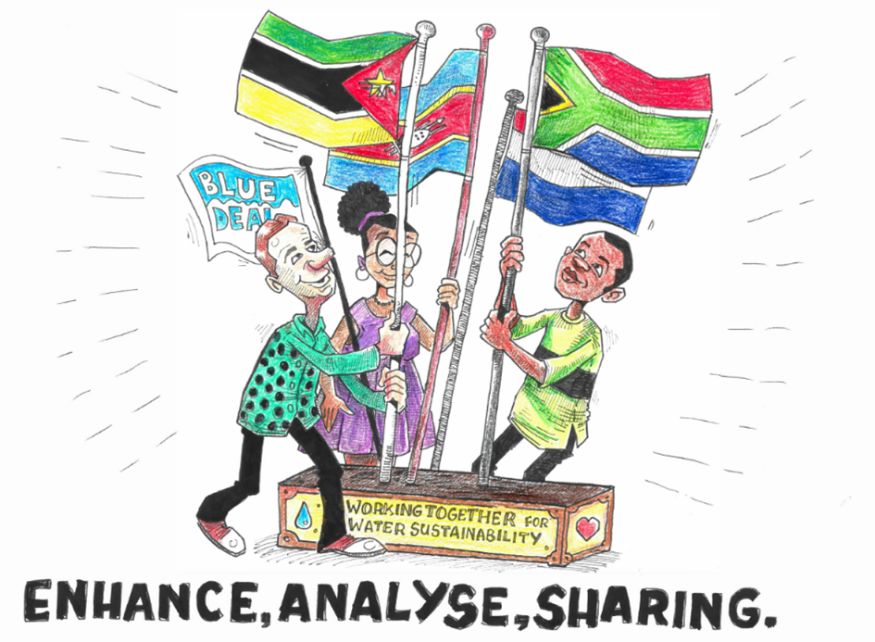As part of the international Blue Deal programme, a delegation of eleven water experts from Mozambique visited the Netherlands this week to explore innovative approaches to water management. The visit, hosted by the Dutch water authorities Wetterskip Fryslân and Waterschap Rijn en IJssel, focused on sharing expertise in dike monitoring, water conservation, data management, and flood risk mitigation.
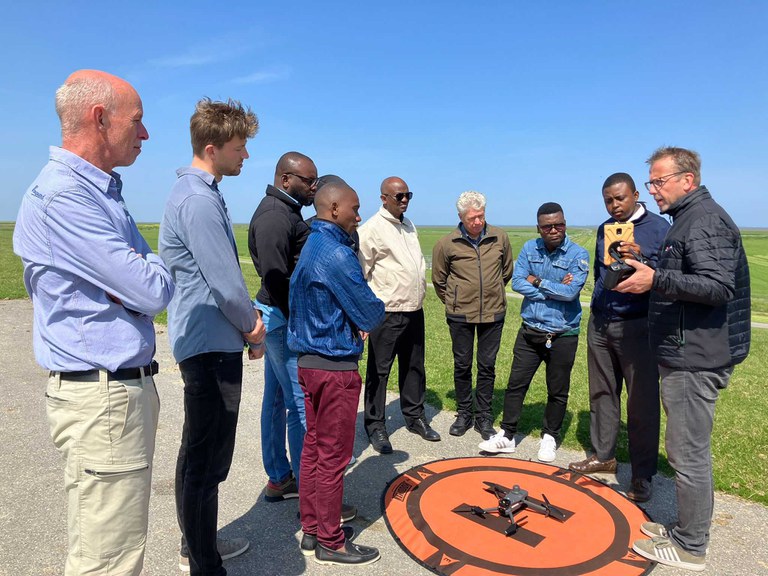
A highlight of the visit was a drone demonstration on June 12 at the Wadden Sea dike near Ferwert. The demonstration illustrated how drone technology can be used to inspect dikes and water barriers quickly, accurately, and safely – even in hard-to-reach areas, as can be the case in Mozambique. The Mozambican delegation observed how drones equipped with cameras can map dike height, alignment, and potential damage. This technology, already in use by Wetterskip Fryslân, will soon be deployed in Mozambique with support from the World Bank.
A Global Mission for Water Security
Wetterskip Fryslân plays a leading role in the Mozambique Blue Deal partnership, working closely with regional water authorities (ARA’s – Administrações Regionais de Águas) and other institutions. Their collaboration focuses on five strategic themes:
- Strengthening budget and asset management
- Enhancing flood forecasting and protection
- Improving water allocation during droughts
- Monitoring and managing water quality
- Upgrading sanitation and drainage systems, especially around Beira
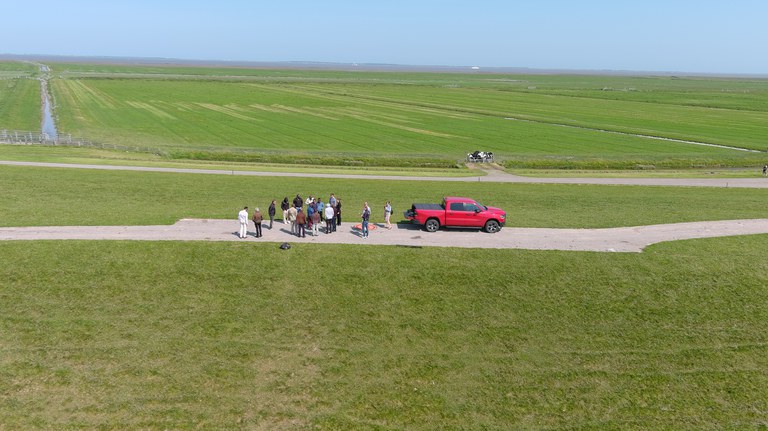
Mutual Learning and Innovation
Luzette Kroon, chair of Wetterskip Fryslân highlighted the importance of exchanging knowledge and experiences from both countries: “The Blue Deal is not just about offering each other support – it’s about learning from each other. Today we’re sharing our experience with drone inspections, but we’re also inspired by how Mozambican partners develop effective water solutions with limited resources. That exchange of knowledge is at the heart of the Blue Deal programme.”
This news item is reposted as a translation of the original article of Wetterskip Fryslân.

